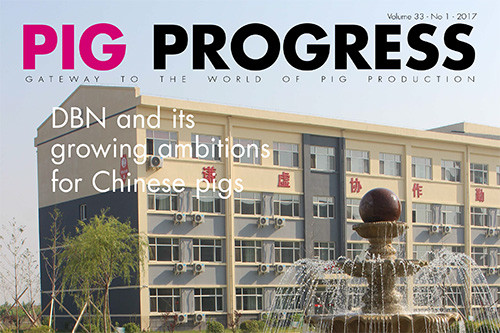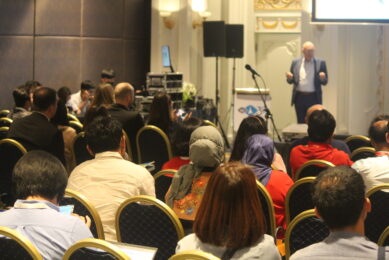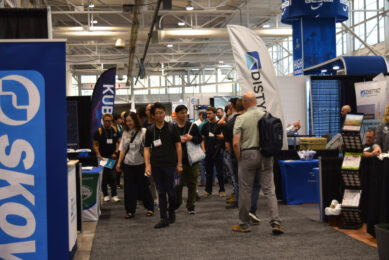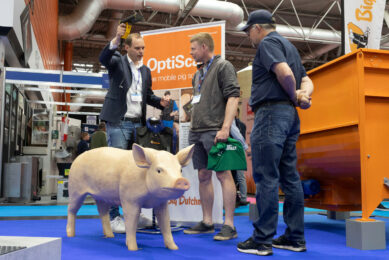Latest edition of Pig Progress goes to Asia

It may not come as a total surprise: with the upcoming VIV Asia show in Bangkok, Thailand, the first edition of Pig Progress has a strong Asian flavour. Worth taking a look!
So what is new at this edition of VIV Asia? That question is key in the article previewing the largest international show in agribusiness for South East Asia, on page 10. Pig Progress editor Vincent ter Beek looks ahead to Thailand, a country that is still in mourning over the loss of its King Bhumibol.
Thailand as tiger cub economy
Nevertheless, Thailand is doing well with regard to agriculture. As Dr John Strak explains, Thailand can be called a ‘tiger cub economy’, and the country is looking to make that big leap forward in case a zone free of Foot-and-Mouth Disease (FMD) can be created. Read all about it on page 12.
VIV Asia revisited
The interview by Pig Progress staff with Jumrat Parnpiansil, owner of a Thai livestock equipment company, almost reads like a feel-good story. He visited VIV Asia by accident years ago, and has grown out to become a regular at many international agriculture exhibitions. The interview can be found at pages 14 and further.
Ambitious Chinese finisher targets
More on Asia as from page 20, as Pig Progress editorial staff were allowed to take a look at one of the key centres of development for the large agribusiness ‘Da Bei Nong’, Chinese for ‘Great Agriculture of the North’.
Recently the business decided to venture into pig production (target: 100 million finishers by 2025) and we visited one of the first outcomes of this ambitious project.
Video: DBN is preparing its pig farmers for the future through a purpose built training centre.
Video created by: Rosie Burgin
Antibiotics use and how to measure it
Antibiotics also take an important place in this edition. European researchers took a closer look at antibiotics usage in 4 European countries (Sweden, Belgium, Germany and France).
Comparing is only possible when measuring usage is going exactly similar, they thought – and that process was used by this team. Many small steps for this team, but a giant step for a more prudent use of antibiotics. Read more on page 6.

Gut health
A very detailed and technical contribution this month comes from authors Wang Wei and Joris Michiels from the University of Ghent, Belgium. They explain in detail the reason why a good gut permeability is at the basis of good gut health – and eventually good pig health. Read more at page 24.

Yeast derivatives
Several yeast derivatives can enhance each other – that in short has been one of the results of ongoing research at Lallemand Animal Nutrition. The company for a while has been searching for purpose-made products for the livestock industry, rather than using yeast derivatives that were originally by-products.
Outcomes are discussed by Bruno Bertaud and David Saornil, on page 26.
Damaged chromosomes
The phenomenon of damaged chromosomes receives ample attention in another informative article by breeding and genetics author Benny van Haandel. He dives into the topic, explaining why damaged chromosomes can sometimes have an effect on genetic programmes and reproductive outcomes. More on this on page 30.

Columns: Colostrum and Trump
What do colostrum and Trump have in common? They are both topic of a column in this issue of Pig Progress. Bimonthly columnist Dr Monique Pairis-Garcia of The Ohio State University wonders what may the new US president Donald Trump bring for animal welfare? Read her answer on page 34.
Regular columnist John Gadd has a few more words to say on colostrum – and launches the A to Z on colostrum on page 8.
To read all the articles in this issue, go to the magazine overview page and sign up with your current website login.











